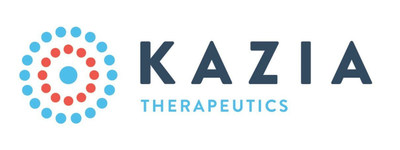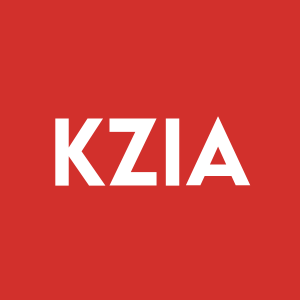Kazia Therapeutics Provides Update on Paxalisib Regulatory Pathway Following Type C Meeting with FDA
Rhea-AI Summary
Kazia Therapeutics (NASDAQ: KZIA) provided an update following its Type C meeting with FDA regarding paxalisib for glioblastoma (GBM) treatment. The July 2024 GBM-AGILE study showed a 3.8-month overall survival improvement in newly diagnosed unmethylated (NDU) patients compared to standard care. FDA indicated that overall survival data would not support accelerated approval but could support traditional approval. The agency and Kazia aligned on key aspects for a proposed pivotal phase 3 study. Paxalisib continues testing in pediatric brain cancer and brain metastases, with Orphan Drug and Rare Pediatric Disease Designations for DIPG and AT/RT. The company expects to outline its path forward by end of January 2025.
Positive
- FDA alignment on key aspects of proposed phase 3 study design
- 3.8-month overall survival improvement demonstrated in GBM-AGILE study
- Orphan Drug and Rare Pediatric Disease Designations received for DIPG and AT/RT
- Potential eligibility for pediatric review vouchers upon approval
Negative
- FDA rejected possibility of accelerated approval pathway
- Additional pivotal phase 3 study required for traditional approval
- Longer regulatory timeline due to requirement for new phase 3 trial
News Market Reaction
On the day this news was published, KZIA declined 42.90%, reflecting a significant negative market reaction.
Data tracked by StockTitan Argus on the day of publication.
In July 2024, the Company reported topline results from the GBM-AGILE study in which newly diagnosed unmethylated (NDU) patients with glioblastoma treated with paxalisib showed a clinically meaningful improvement in a prespecified secondary analysis for overall survival (OS) compared to standard of care. Based on these results and the totality of data from all completed paxalisib clinical studies, Kazia requested a meeting with the FDA to discuss potential clinical and regulatory paths forward.
Following discussions with the FDA and feedback from Kazia's recent Type C meeting, the FDA's current position is that data on OS would generally not be appropriate for accelerated approval, but could be considered to support a traditional/standard approval. The Agency further commented that the secondary endpoint OS data from the GBM-AGILE study are supportive and informative for designing and executing a pivotal registrational study in pursuit of a standard approval. Importantly, the Company aligned with the FDA on key aspects of the design of a proposed registrational/pivotal phase 3 study, including patient population, primary endpoint, and the comparator arm to be used.
"We appreciate the extensive and thoughtful feedback from the FDA, which provides us with added clarity with respect to paxalisib's potential registration pathway for the treatment of patients with NDU glioblastoma," commented Dr. John Friend, Kazia's CEO "We believe data from the GBM-AGILE trial, including the prespecified secondary endpoint, which demonstrated a 3.8-month OS improvement, provides evidence supporting a clinically meaningful efficacy signal that merits further testing paxalisib in this patient population in a larger, pivotal study."
"As we evaluate our next steps in NDU glioblastoma, paxalisib continues to be tested in a number of other key indications, including pediatric brain cancer and brain metastases. We have received Orphan Drug and Rare Pediatric Disease Designations for both DIPG and AT/RT, which could make us eligible to receive pediatric review vouchers at the time of product approval. We recently presented very exciting data at the San Antonio Breast Cancer meeting highlighting synergistic activity between a novel combination of paxalisib and immunotherapy, and we believe paxalisib shows potential to be evaluated in breast cancers where iPI3K pathway mutations are known to drive tumor growth. The Kazia team, in conjunction with the Board of Directors, is continuing to evaluate several options, and we expect to provide an outline for our path forward to maximize shareholder value by the end of January 2025."
About Kazia Therapeutics Limited
Kazia Therapeutics Limited (NASDAQ: KZIA) is an oncology-focused drug development company, based in
Forward-Looking Statements
This announcement may contain forward-looking statements, which can generally be identified as such by the use of words such as "may," "will," "estimate," "future," "forward," "anticipate," or other similar words. Any statement describing Kazia's future plans, strategies, intentions, expectations, objectives, goals or prospects, and other statements that are not historical facts, are also forward-looking statements, including, but not limited to, statements regarding: the timing for results and data related to Kazia's clinical and preclinical trials, Kazia's strategy and plans with respect to its programs, including paxalisib and EVT801, the potential benefits of paxalisib as an investigational PI3K/mTOR inhibitor, timing for any regulatory submissions or discussions with regulatory agencies, and the potential market opportunity for paxalisib. Such statements are based on Kazia's current expectations and projections about future events and future trends affecting its business and are subject to certain risks and uncertainties that could cause actual results to differ materially from those anticipated in the forward-looking statements, including risks and uncertainties: associated with clinical and preclinical trials and product development, related to regulatory approvals, and related to the impact of global economic conditions. These and other risks and uncertainties are described more fully in Kazia's Annual Report, filed on form 20-F with the SEC, and in subsequent filings with the United States Securities and Exchange Commission. Kazia undertakes no obligation to publicly update any forward-looking statement, whether as a result of new information, future events, or otherwise, except as required under applicable law. You should not place undue reliance on these forward-looking statements, which apply only as of the date of this announcement.
This announcement was authorized for release on behalf of the Board of Directors by Dr John Friend, CEO.
![]() View original content to download multimedia:https://www.prnewswire.com/news-releases/kazia-therapeutics-provides-update-on-paxalisib-regulatory-pathway-following-type-c-meeting-with-fda-302340490.html
View original content to download multimedia:https://www.prnewswire.com/news-releases/kazia-therapeutics-provides-update-on-paxalisib-regulatory-pathway-following-type-c-meeting-with-fda-302340490.html
SOURCE Kazia Therapeutics Limited








